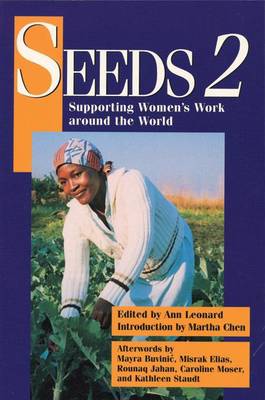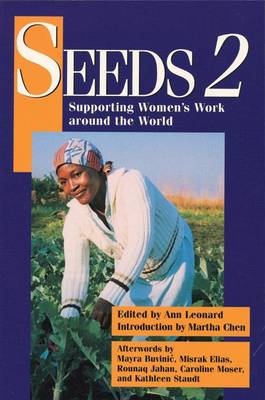
Bedankt voor het vertrouwen het afgelopen jaar! Om jou te bedanken bieden we GRATIS verzending (in België) aan op alles gedurende de hele maand januari.
- Afhalen na 1 uur in een winkel met voorraad
- Gratis thuislevering in België
- Ruim aanbod met 7 miljoen producten
Bedankt voor het vertrouwen het afgelopen jaar! Om jou te bedanken bieden we GRATIS verzending (in België) aan op alles gedurende de hele maand januari.
- Afhalen na 1 uur in een winkel met voorraad
- Gratis thuislevering in België
- Ruim aanbod met 7 miljoen producten
Zoeken
Seeds 2
Supporting Women's Work Around the World
Paperback | Engels
€ 27,45
+ 54 punten
Omschrijving
When the population of Port Sudan leaped from 50,00 in 1956 to half a million in the 1980s, a small-scale enterprise program was initiated to aid the poorest residents in saving and expanding the small businesses that supported them and their families. The analyses of this and six other projects, along with the introduction and afterwords for this volume, illuminate various strategies aimed at increasing women's access to land, labor, and credit markets; providing child care, health care, and other support services; and organizing women for collective action and political participation. Seeds 2 also includes a study that documents UNICEF's efforts to institute child-care programs in Ecuador, Ethiopia, and Nepal with an emphasis on health and education. Case studies from India, Mozambique, and Zambia describe women joining together to use the land more beneficially for people and ecology and, in the process, to learn new skills in organizing, literacy, and accounting. In the United States, Women Venture provides the means and support for women to start their own businesses as a route out of welfare and poverty. Seeds 2 puts into global perspective both problems and successes of projects that promote women's economic self-sufficiency and political participation.
Specificaties
Betrokkenen
- Uitgeverij:
Inhoud
- Aantal bladzijden:
- 207
- Taal:
- Engels
Eigenschappen
- Productcode (EAN):
- 9781558611061
- Verschijningsdatum:
- 1/07/1995
- Uitvoering:
- Paperback
- Formaat:
- Trade paperback (VS)
- Afmetingen:
- 152 mm x 228 mm
- Gewicht:
- 412 g

Alleen bij Standaard Boekhandel
+ 54 punten op je klantenkaart van Standaard Boekhandel
Beoordelingen
We publiceren alleen reviews die voldoen aan de voorwaarden voor reviews. Bekijk onze voorwaarden voor reviews.











